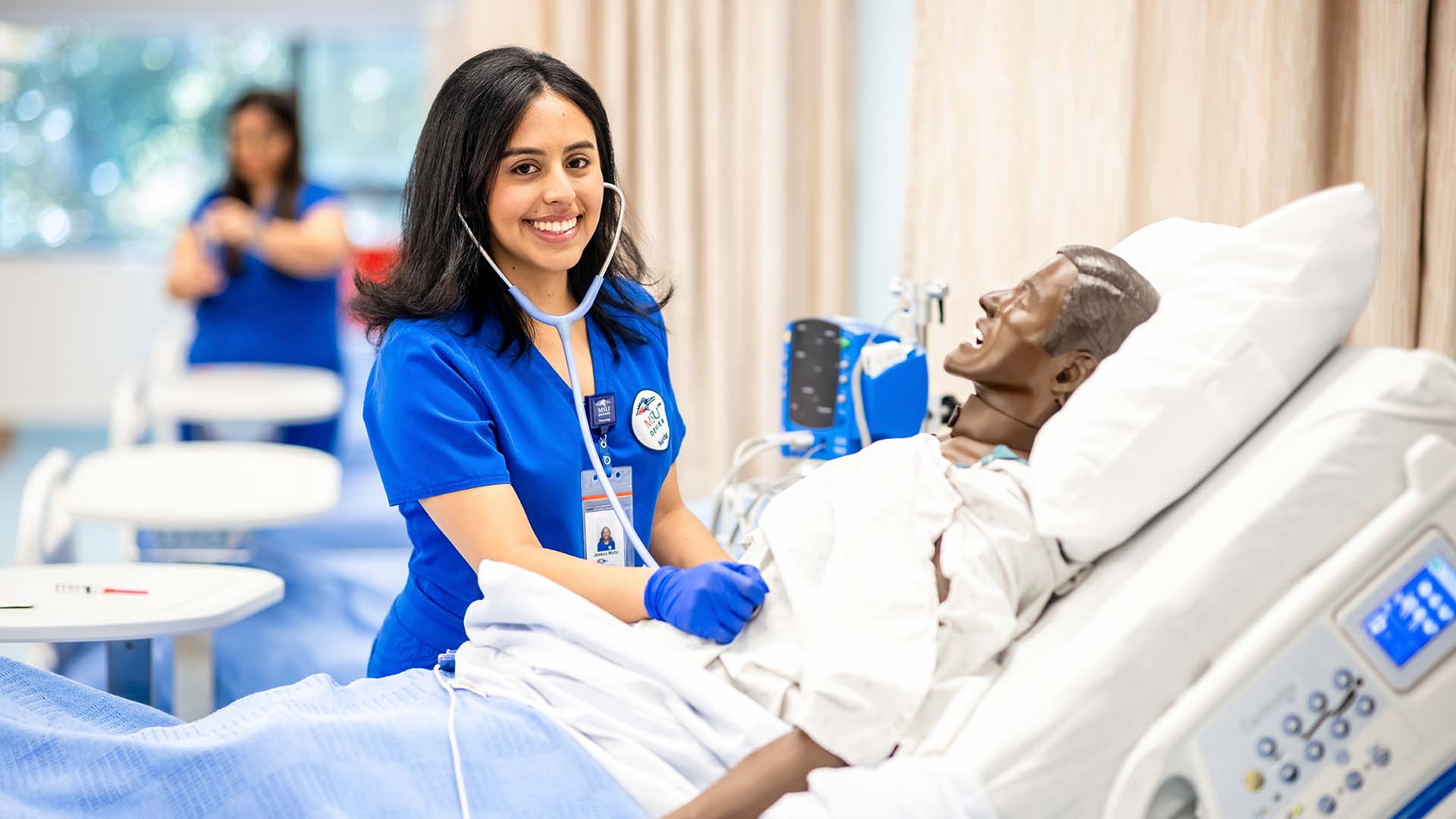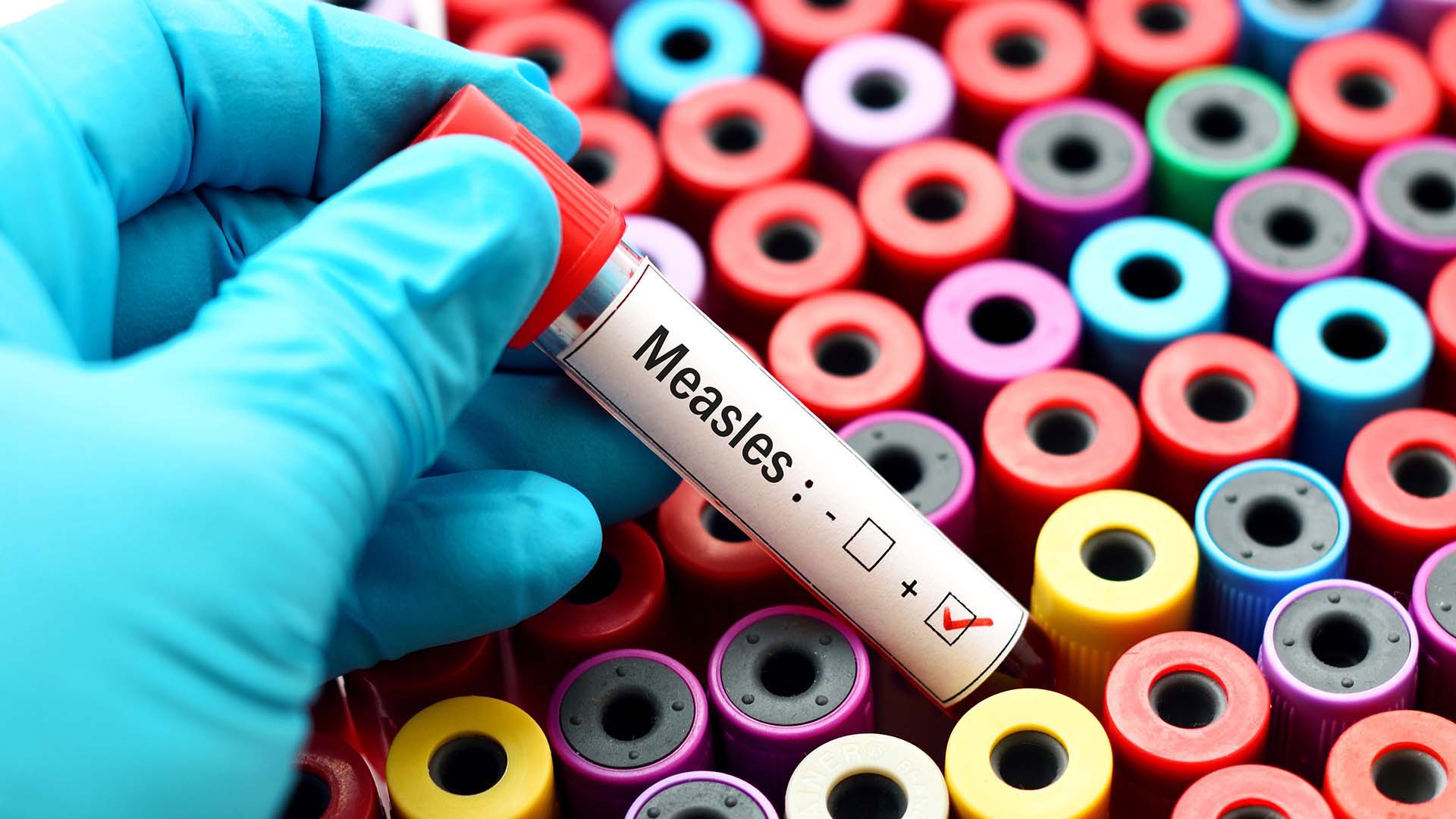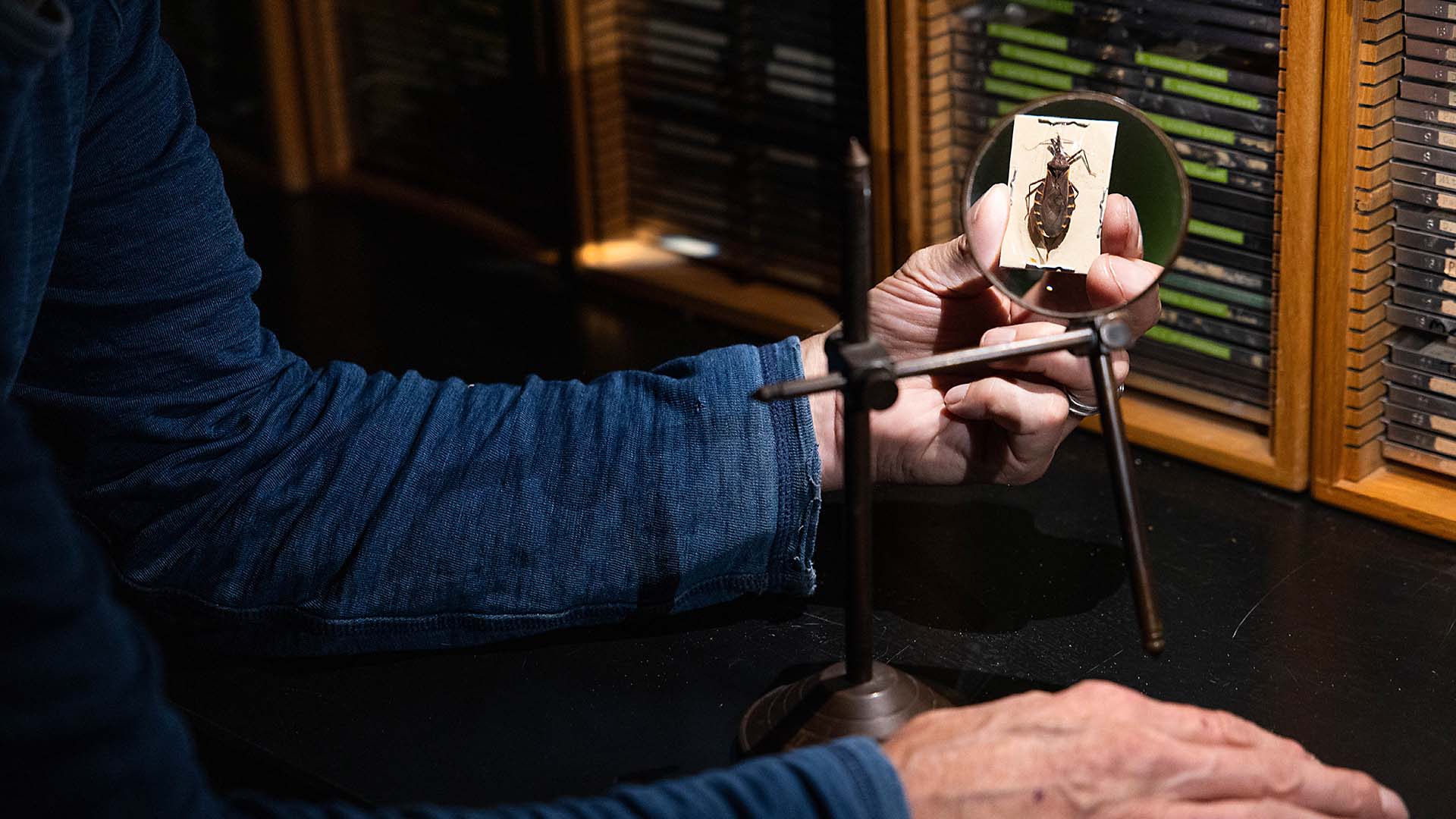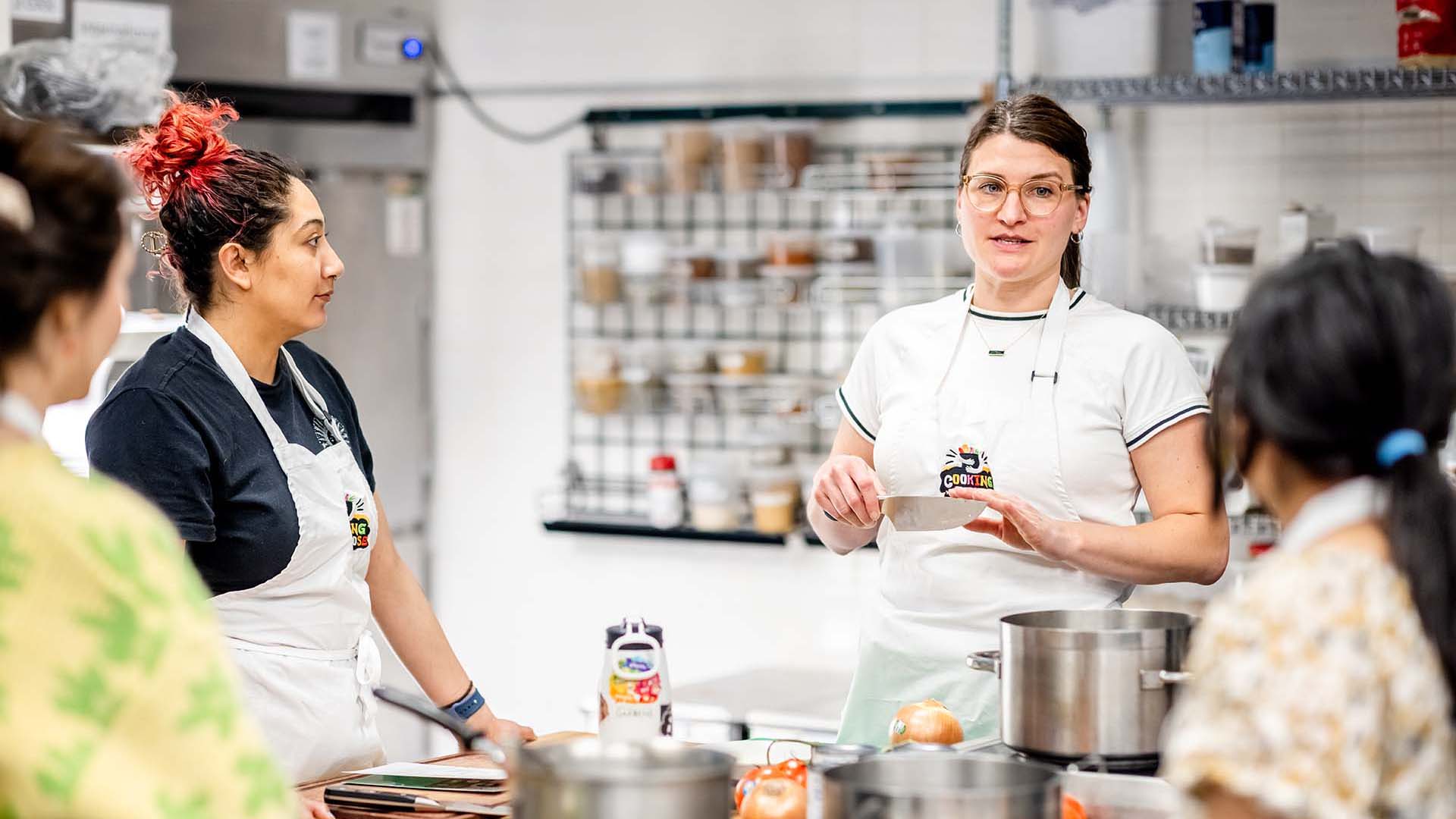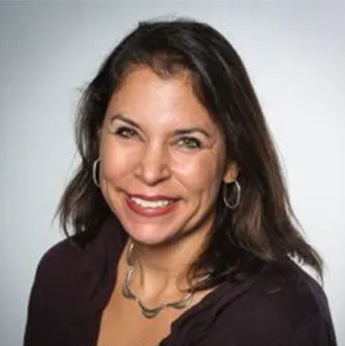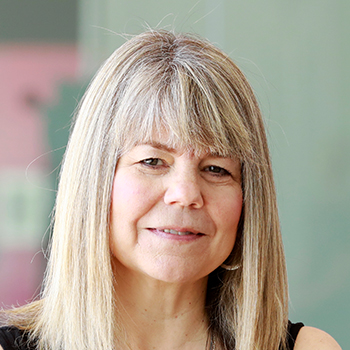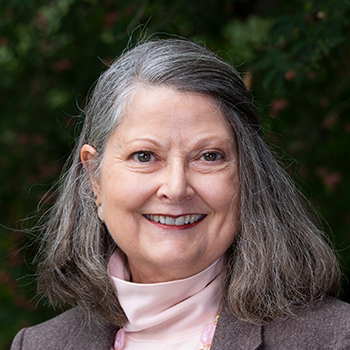Sim Labs pave the way for the future of health care
MSU Denver’s new Interprofessional Simulation and Skills Laboratory will meet workforce challenges in nursing and beyond.
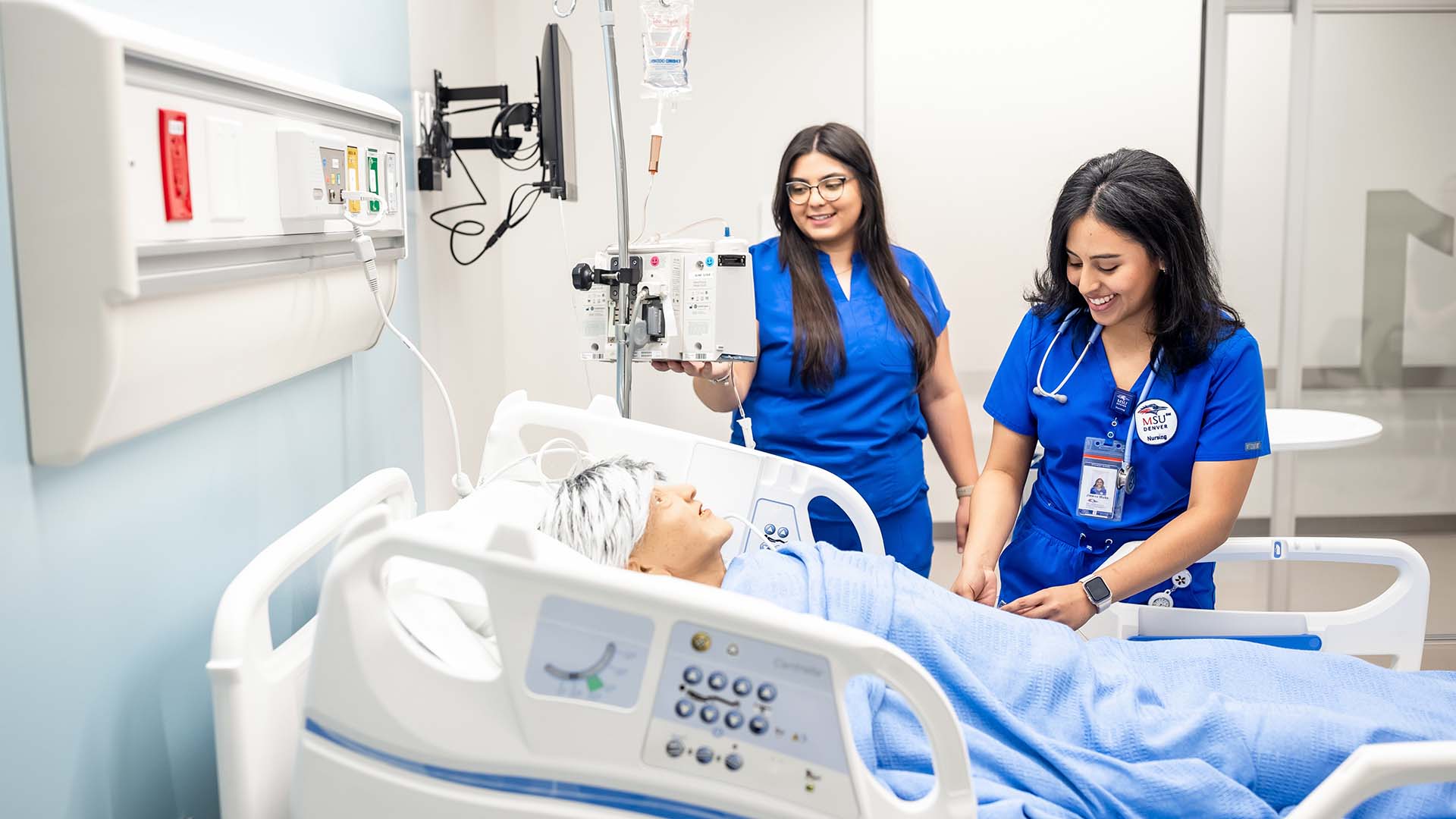
Metropolitan State University of Denver ushers in a new frontier for the future of patient-centered health care this September with the opening of its Interprofessional Simulation and Skills Laboratory, or Sim Labs.
The state-of-the-art space, housed in the renovated West Classroom building, features a nurses station, an ambulance bay, a home health lab and other simulated care environments. The Sim Labs are a centerpiece of the Gina and Frank Day Health Institute at MSU Denver.
These training spaces offer students an opportunity to put their knowledge, skills and understanding into action to address the Colorado workforce demand for nursing and beyond, said Mary Tucker, DNP, director of the facility.
“The Sim Labs provide a safe, realistic academic setting to practice and improve to meet professional expectations,” she said. “(These activities) build the foundation for students and professionals to come together and learn about, from and with others.”
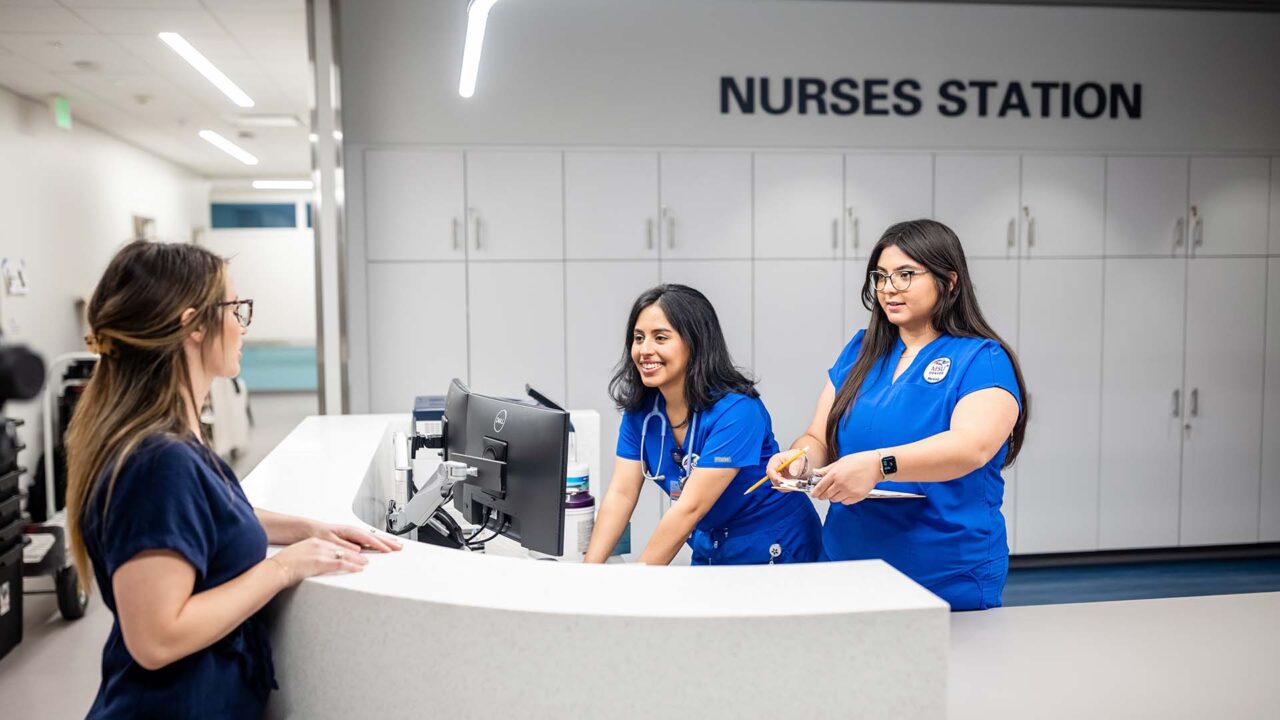
That work couldn’t come at a more critical juncture. Colorado expects a potential shortfall of more than 10,000 registered nurses and 54,000 allied health positions by 2026, according to the latest U.S. Healthcare Labor Market report from Mercer. The gap is among the direst in the nation.
RELATED: Colorado needs health care workers. MSU Denver has a plan to provide them
Part of the discrepancy comes from an educational path often limited by capacity and application, said Hope Szypulski, DNP, dean of MSU Denver’s College of Health and Human Sciences.
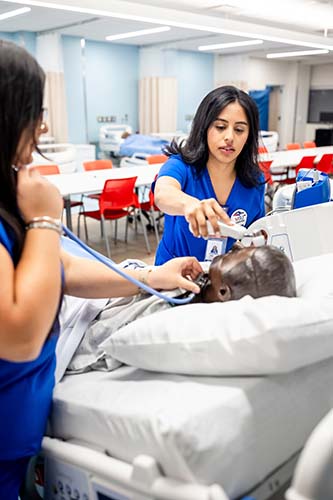
Szypulski explained that Nursing students spend countless hours in the classroom, yet when they enter the clinical setting, the complexity of working with real patients can be overwhelming. That variance has resulted in a steep learning curve for many professionals. Simulation labs allow students to experience clinical scenarios without real-world consequences, helping ensure their success in the field.
With research indicating that patients achieve better outcomes when receiving care from practitioners who share their background, the University’s diverse student population proves to be a winning prescription for closing health equity gaps.
“MSU Denver is the ideal place for this effort because our University is truly of, by and for the populations we serve,” Szypulski said.
RELATED PHOTOS: Nursing students experience the new Sim Labs
Nursing student Marisa Schreiner, who received her CNA license last year and has since worked in assisted living, can’t remember a time she didn’t want to be a nurse. And as president of the MSU Denver Student Nurses’ Association, she’s looking forward to further opportunities for her and her classmates to hone their skills in a lower-stakes, applied environment.
“I’m really excited about the new facilities,” Schreiner said. “My experience with the whole program has been so great, and that was with our previous location (in Boulder Creek), so I can’t imagine what’s in store for the future.”
Interprofessional Education, or IPE, is an essential component of the hands-on education happening in the labs. IPE is when students and practitioners from two or more disciplines engage with one another in the learning process. The cross-disciplinary approach prepares students for the modern workforce by closely mirroring what they will encounter each day on the job.
“IPE is vital to improving patient outcomes and is practiced routinely in health care settings,” Tucker said. “Weaving these activities into programs offered at MSU Denver is key to preparing students with realistic professional-setting scenarios.”
And though the University already has embraced IPE in spirit and practice, the groundbreaking facility increases the learning impact by orders of magnitude.
RELATED: MSU Denver celebrates breaking ground on new Health Institute simulation lab
One notable interprofessional collaboration is with Denver Health’s EMT students, who work with MSU Denver Nursing students to learn about seamless patient handoff. Both groups are leveling up their skills in the Sim Labs’ ambulance bay installation.
Other examples include recent interprofessional collaborations between the University’s Department of Speech, Language, Hearing Sciences and its Nursing program. Efforts are also underway across subjects such as journalism, social work and marketing.
“With the new Sim Labs, our programs will have the space to grow, allowing us to train and send even more skilled health care professionals into the workforce in the state they call home,” Szypulski said.

